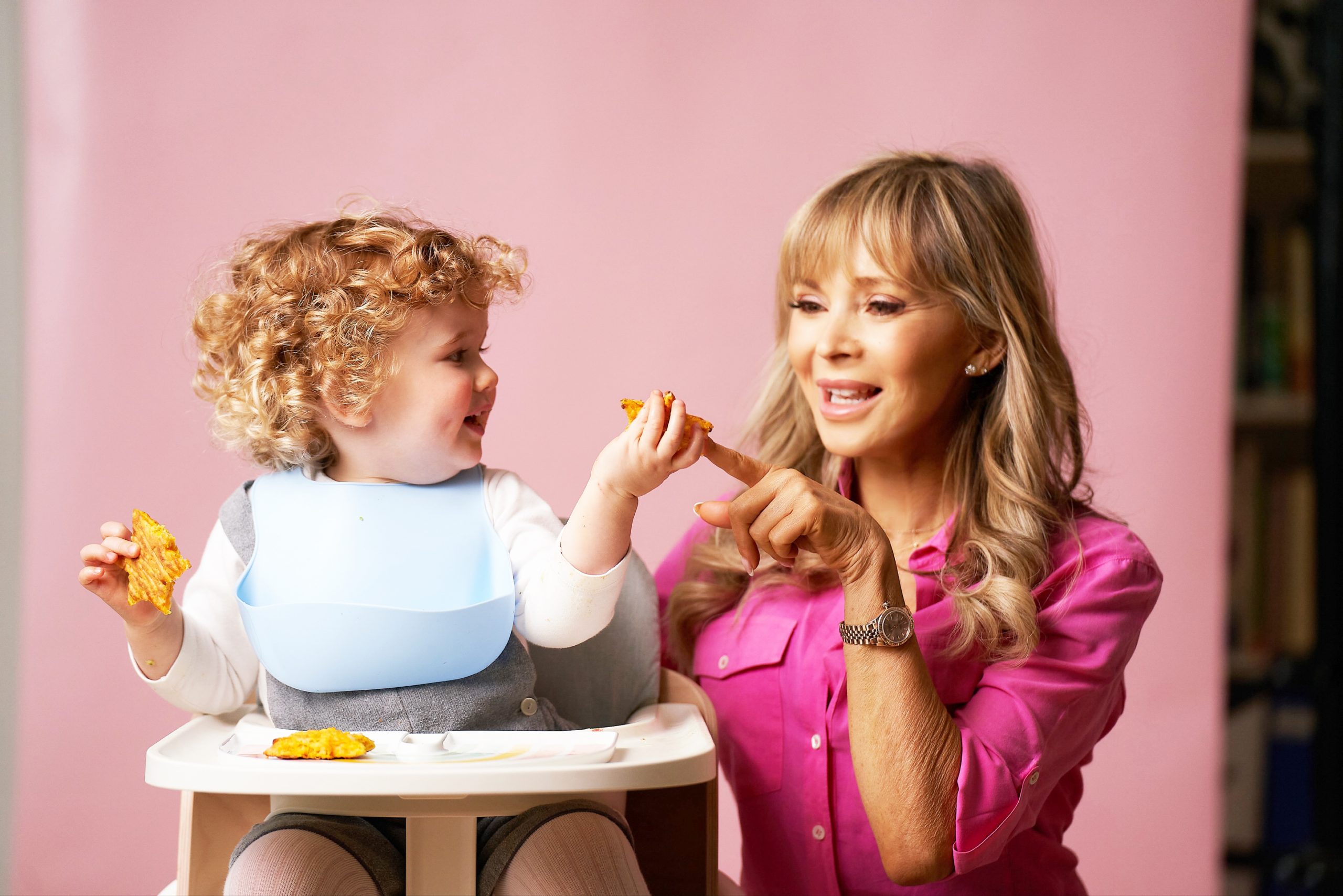For everything baby. Expert advice. Exceptional customer service
0
Your Cart
0 item
Your cart is currently empty!
Written By No. 1 baby & children’s cookery author Annabel Karmel

For most babies, their first teeth will make an appearance around the same time that they start their weaning journey. Teething can be a tricky obstacle when your baby is exploring solid foods – if your baby’s gums are sore, and they are feeling a little under the weather, it’s no surprise that they may prefer the comfort of their usual milk over trying new foods.
As with most baby milestones, all babies are different and that first tooth can pop through anytime between 3 months or as late as late 12 months! However, it is common for babies to start teething between 4 to 7 months, and the two bottom front teeth are usually the first to appear.
Symptoms of teething
Teething can be uncomfortable for your baby, so it’s important that you can identify the symptoms and know how to help soothe them.
Fortunately there’s rarely a need for detective work - your baby will likely let you know when their teeth are coming through!
Key signs to look our for:
Teething stimulates the excessive production of saliva resulting in drooling. It might be a good idea to invest in some teething bibs to protect your baby’s clothes from getting constantly wet through!
A teething baby is known to bite on anything they can get their gums around. The pressure experienced from biting is believed to help babies relieve the painful pressure on their gums. At the same time parents may find that their baby refuses to eat or only eats very little.
Distraction is often the key! They might be too irritable or restless to play but it can help keep their mind off the pain. Baths or a walk outside in the fresh air can also work wonders with a fussy baby.
It goes without saying that your baby’s gums will be sore with a tooth trying to pop through the surface! Teething gums may be sore and red and you might even see little white dots or small openings where the next tooth is about to cut through (if your baby keeps their mouth open long enough for you to have a glimpse that is!)
The irritation of a new tooth coming through the gum can cause your baby’s cheeks to appear rosy and possibly feel warm.
The pain of teething is likely to have an effect on your baby’s sleep. Babies who suffer from teething pain are more likely to wake up at night when the pain becomes too much. Sleepless nights occur most often when your baby cuts his or her very first tooth and towards the end of the process when those larger molars come out.
Easing the pain
The good news is, there are many ways that you can help soothe your baby’s sore gums. Different methods work for different babies, so try a few things until you find something that works.
Some tried and tested remedies for teething babies:
Best foods for teething babies
While sore gums can make eating some foods tricky, there are others that can help soothe your baby’s symptoms. Here are my top foods for teething babies:
Looking for mealtime inspiration for your baby or toddler? Annabel’s award-winning recipe app is home to over 1,000 simple and delicious ideas for the whole family, PLUS new recipes every week.
Packed with expert weaning support, including Annabel’s #1 listen-along guide, it’s a kitchen essential for happy, healthy mealtimes.
Get your first month FREE with promo code BabalooAK.

Don’t have an account? Create an account
Already have an account? Sign in